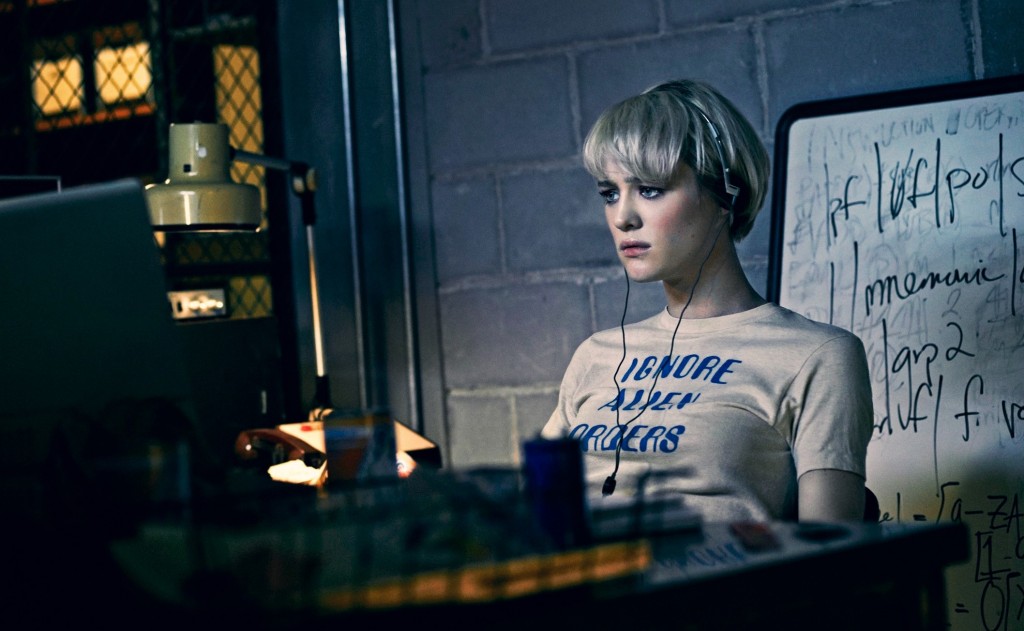AMC’S HALT AND CATCH FIRE follows a ragtag team of four in their attempt to create a new PC, the Giant, to rival IBM’s product offerings. The show’s treatment of the two female protagonists, Cameron Howe and Donna Clark, cements it as a stand-out title among similar shows. It may be the only series in its niche to feature equal gender representation among its main characters: two women and two men. Neither Silicon Valley nor The Big Bang Theory can claim to do so.
While STEM — an acronym referring to the fields of Science, Technology, Engineering, and Mathematics – stands out as one of the last boys’ club bastions, Halt and Catch Fire isn’t being historically inaccurate by including women. Although the percentage of STEM jobs held by women has dropped dramatically since the mid-1980s, the sexism Cameron and Donna face is almost identical to that experienced by women in tech today.
Both women often find themselves on the receiving end of workplace sexism. Cameron has to argue — albeit briefly — for the right to name her own software, and Donna — a brilliant engineer — is treated as little more than a secretary. The leering stares, crude comments, and mansplaining they encounter are all too familiar to us in the 21st century. But three years before the Supreme Court first determined that workplace sexual harassment violated the Civil Rights Act of 1964, refusal to allow bullying to affect her was a working woman’s defense against hostility. This is what we see when Cameron and Donna encounter sexism: This guy’s a jackass, but I’m not going to let him faze me.
While Cameron and Donna catch more than a few comments about their respective sexual activities, Halt and Catch Fire never seems to condone this policing. The AMC title makes this clear early on in the series, when Cameron has sex with Joe, one of the male protagonists. During the act, he tells her that their encounter won’t guarantee her the job he’s offering, to which she responds by pulling away and sarcastically throwing his sexism back in his face: “You mean we’re not in love?” Viewers are never given the chance to interpret Cameron as a sexual victim. With this one phrase — and the ending of their tryst — she establishes herself as a woman in full control of her sexuality.
Later in the series, Donna kisses a man who is not her husband after she misinterprets his friendliness as sexual interest. She admits the transgression to her husband Gordon — the show’s fourth and final protagonist — who uses the incident to take jabs her at every available opportunity. While Gordon’s response is ultimately expected, Donna stands by her choice: she has felt alone and unappreciated, at both work and home, for far too long.
The show depicts Donna and Gordon’s marriage in a different light than one would expect from a similar period drama. The couple is still reeling from a failed startup project when Joe comes along. Gordon is eager for a second chance at wealth and notoriety, but selfishly minimizes the inherent risks to his family’s well-being. Donna refuses to ignore their financial troubles, and is at first unwilling to stake what little stability they have. Arguments about the Giant, and about their responsibilities in the home, are frequent. Yet Donna is never portrayed as irrational or overly-emotional. Her responses are not the protests of Gordon’s “ball and chain,” but are instead the well-reasoned statements of a woman trying to maintain stability and manage her family with little help from her partner.
Halt and Catch Fire does not present Donna’s decision to marry and have children as a hindrance to her success or an insult to her abilities. It also doesn’t portray the androgynous Cameron as a woman in defiance of her biological destiny. Both women’s choices are equally valid, and their lives are their own.
Most importantly, Cameron and Donna are not pitted against each other. There is little backbiting between them, and whenever one wrongs the other, she apologizes or makes up for it in some way. It’s a tiny, almost unnoticeable piece of Halt and Catch Fire‘s plot, but portraying female solidarity is remarkable in a society that socializes girls to consider each other rivals, and in which the media presents this socialization as normal.
While it hasn’t yet achieved the notoriety to be considered a landmark series, Halt and Catch Fire is nevertheless important at a time when organizations are being formed to combat the underrepresentation of women in STEM. In presenting its audience with two radically different — yet equally brilliant, capable, challenging, and powerful — women, AMC’s series sets itself apart from every show and film that stratifies womanhood. It even passes the Bechdel Test, so really, what reason do you have to not watch it?
Season 2 of Halt and Catch Fire premieres May 31.

















